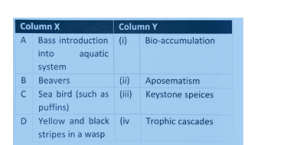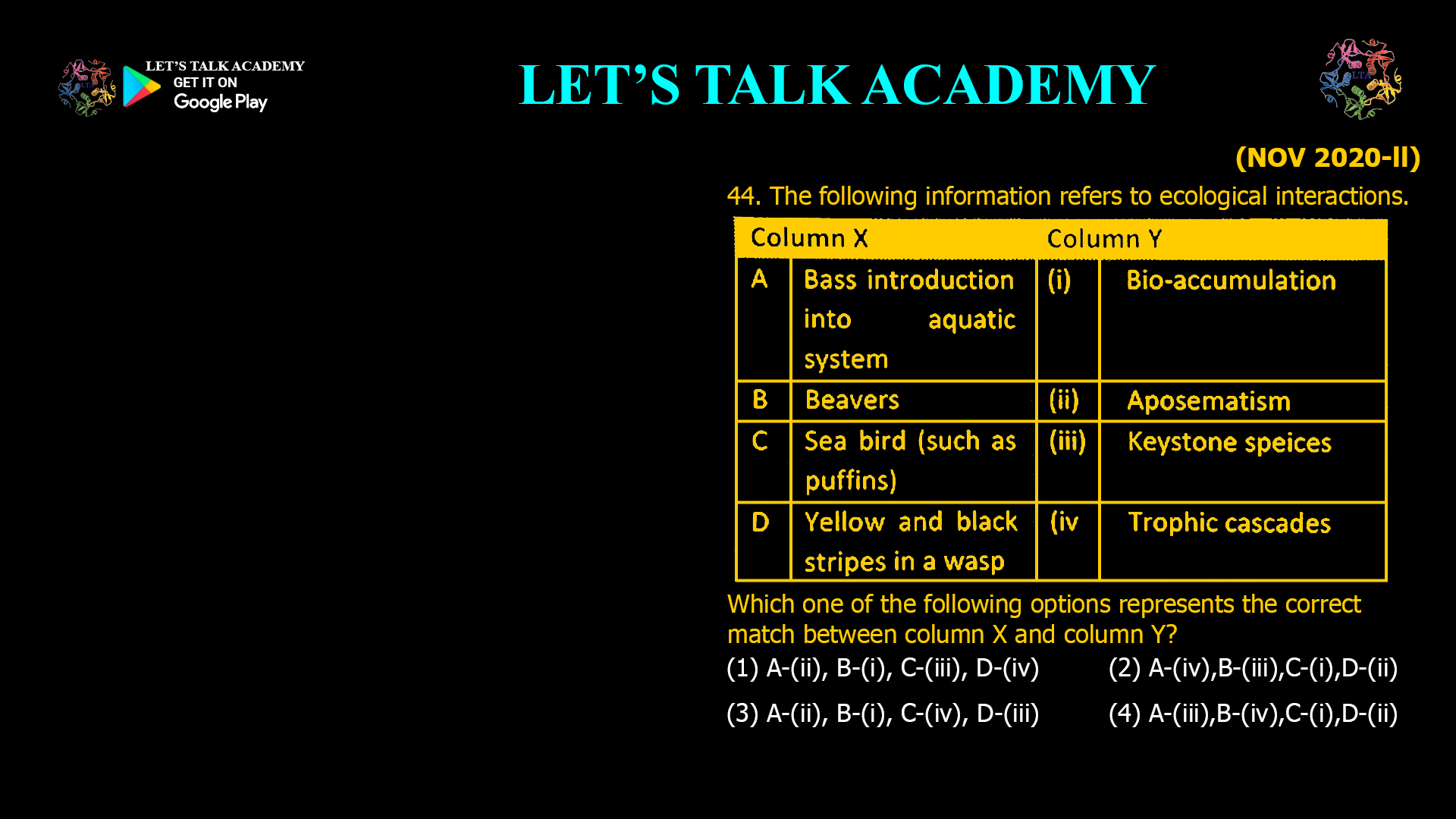- The following information refers to ecological interactions.

Which one of the following options represents the correct match between column X and column Y?
(1) A-(ii), B-(i), C-(iii), D-(iv) (2) A-(iv), B-(iii), C-(i), D-(ii)
(3) A-(ii), B-(i), C-(iv), D-(iii) (4) A-(iii),B-(iv),C-(i),D-(ii)Ecological interactions form the foundation of community ecology, shaping the structure and function of ecosystems. Understanding the various types of interactions—such as competition, predation, mutualism, and commensalism—is essential for anyone studying biology or environmental science. Let’s explore how these interactions are defined and how to correctly match them with their descriptions.
Major Types of Ecological Interactions
-
Competition: Both species are negatively affected as they vie for the same limited resources, such as food, space, or light. This is a -/- interaction.
-
Predation: One species (the predator) benefits by feeding on another species (the prey), which is harmed. This is a +/- interaction.
-
Mutualism: Both species benefit from the interaction, such as bees pollinating flowers. This is a +/+ interaction.
-
Commensalism: One species benefits, while the other is neither helped nor harmed, such as barnacles on a whale. This is a +/0 interaction.
-
Parasitism: One species (the parasite) benefits at the expense of the other (the host), which is harmed. This is a +/- interaction, but distinct from predation due to the typically prolonged association.
Matching Column X (Interaction) to Column Y (Definition/Example)
Based on standard ecological definitions and the information provided in the search results1234, the correct matches are:
-
A (Competition): (ii) Both species are negatively affected by the interaction (-/-)
-
B (Predation): (i) One species benefits, the other is harmed (+/-)
-
C (Mutualism): (iv) Both species benefit from the interaction (+/+)
-
D (Commensalism): (iii) One species benefits, the other is unaffected (+/0)
Correct Option
The correct answer is:
(1) A-(ii), B-(i), C-(iii), D-(iv)
Why This Is Correct
-
Competition always results in a negative impact on both participants as they compete for the same resources13.
-
Mutualism is a win-win relationship, with both species gaining benefits14.
-
Commensalism benefits one species without affecting the other14.
Conclusion
Understanding and correctly matching ecological interactions is fundamental to ecology. These relationships—competition, predation, mutualism, and commensalism—determine how species coexist and interact in nature, influencing everything from population dynamics to ecosystem stability. Mastering these concepts is key to appreciating the complexity and balance of natural communities.
-




1 Comment
Kajal
November 9, 2025Not done